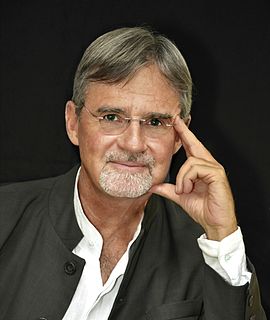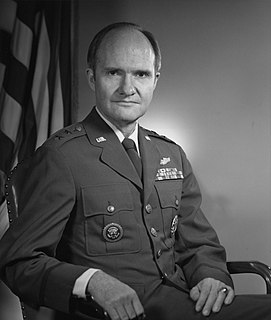A Quote by Henry A. Kissinger
I think a resumption of the Cold War would be a historic tragedy. If a conflict is avoidable, on a basis reflecting morality and security, one should try to avoid it.
Related Quotes
If someone puts up the argument that King Louis gave the Romagna to Pope Alexander, and the kingdom of Naples to Spain, in order to avoid a war, I would answer as I did before: that you should never let things get out of hand in order to avoid war. You don't avoid such a war, you merely postpone it, to your own disadvantage.
I think war and armed conflict is always the last of all the options you have on the table. I think you try to avoid that at all costs. Sometimes it's unavoidable. That's the lesson of World War II. I think the other lesson of the last 50 or 60 years, however, is that, the stronger the U.S. military, the stronger our defense capabilities, the stronger the chances for peace are.
In 1945, at the beginning of the Cold War, our leaders led us astray. We need to think of the Cold War as an aberration, a wrong turn. As such, we need to go back to where we were in 1945 - before we took the road to a permanent war economy, a national security state and a foreign policy based on unilateralism and cowboy triumphalism.
Is war an inevitable outcome of competing interests in a complex society? In other words, would war be the same even if human nature were very different? There are mathematical models of large groups working together that lead to conflict on a reliable basis. So there's a whole other view of war that is not psychological at all.
We're always projecting our moral categories on things. I think that's inevitable. But capitalism places no particular value on morality. Morality in the market is enforced by contract and regulation and law, because morality is understood to be in conflict with the motive force of greed and accumulation.
... I don't think anybody should avoid mistakes. If it is within their nature to make certain mistakes, I think they should make them, make the mistakes and find out what the cost of the mistake is, rather than to constantly keep avoiding it, and never really knowing exactly what the experience of it is, what the cost of it is, you know, and all the other facets of the mistake. I don't think that mistakes are that bad. I think that they should try and not do destructive things, but I don't think that a mistake is that serious a thing that one should be told what to do to avoid it.
We stopped the fighting in 1991 on an agreement that Iraq would take steps to assure the world that it would not engage in further aggression and that it would destroy its weapons of mass destruction. It has refused to take those steps. That refusal constitutes a breach of the armistice which renders it void and justifies resumption of the armed conflict.































